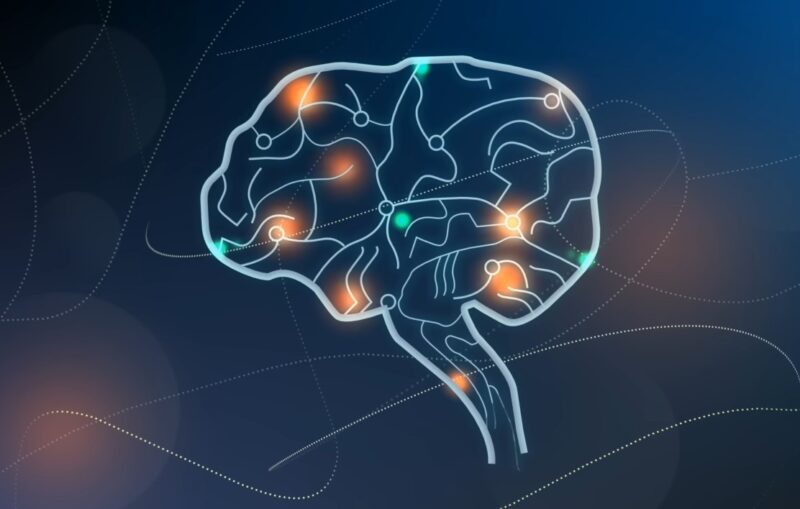
Share Post:
Understanding the profound link between happiness and physical health is paramount to overall health and well-being. Study after study is finding some powerful evidence to support that positive emotions and an optimistic outlook toward life can do everything from boosting our immune function to dramatically increasing the health of our hearts.
As such, the more we delve into this balance of the functions of the mind with the body, the key roles of the neurotransmitters and the impact of stress, the more will come out the active role of social connections in shaping our health and happiness.
Exploring an intrinsic symbiotic relationship between happiness and physical health needs to be appreciated in terms of the holistic effect on the mental well-being of the bodily systems.
After all, happiness does not brighten our moods but sends off a domino of physiological positives that build up our infrastructure.
For example, growth factors might be released in the body because of positive emotions, repairing both cells and tissues and thus amplifying the body’s inherent healing process.
This biological response underscores the power of a positive mindset to create mental clarity and emotional equilibrium and strengthen physical resilience in the face of diseases and ageing, thus intimating the profound connectedness between our emotional and physical health.
The Link Between Happiness and Physical Health
Numerous studies will prove that happiness is highly associated with physical well-being. If an individual keeps having positive emotions with a high level of optimism and self-respect, then in general, it shows improvement in overall health.
This connection is not merely coincidental; it is rooted in the intricate interplay between mind and body.
Generally, more satisfied individuals engage in more health-related practices such as regular exercise and balanced nutrition that contribute to their sound physical health.
In such a context, with a focus on plant-based remedies certified by the USDA, companies like onefarm.com have a very rich range of products. Theirs are manufactured using powerful adaptogenic blends sourced from around the world. They help build immunity, reduce inflammation, relax, and get better sleep from their products.
Another noteworthy contributor to the realm of natural wellness is bluebirdbotanicals.com. Their commitment to enhancing health extends beyond just products; it’s about creating a sustainable and educated community that values and understands the power of natural remedies.
Their approach combines the purity of natural ingredients with the rigor of scientific research to offer effective solutions for maintaining health and happiness. With a strong emphasis on ethical practices and environmental stewardship, they support not only individual well-being but also contribute to global sustainability efforts.
The Role of Neurotransmitters in Happiness

The most important determiner, if not the most important, of our ability to be happy is the delicate balance between the neurotransmitters; these important neurotransmitters include dopamine, serotonin, and endorphins, which are put in an advanced relationship to pleasure and good feelings.
Dopamine is linked to rewarding and pleasure-inducing behaviour. It is commonly called the “feel good” neurotransmitter, while serotonin has to do with mood and emotional stability.
On the other hand, endorphins are pain reduction agents; they are released in activities that make people happy, such as exercise and laughter, contributing to even better physiological and mental health.
Further, resilience and the ability for proper brain cognitive function rely on the balance and interaction of these neurotransmitters. At the same time, the optimal levels of these chemicals improve mood and pleasure and enhance memory, attention, and problem-solving skills.
For example, serotonin not only deals with mood regulation but also reaches cognitive functions and decision-making processes, explaining how the brain’s chemical environment is intricately connected to our mental abilities and emotional health.
This fact only explains the importance that we need to provide to the neurotransmitter systems in our brain for keeping up our emotional state, coupled with the health of thinking and psyche.
The Effects of Stress on Physical Well-Being

Constant stress over a long time can affect an individual’s general health. An individual often subjected to stress releases very high amounts of cortisol, which is otherwise termed the stress hormone.
High cortisol can cause a multitude of health problems, from high blood pressure to decreased immune function and an increased risk for heart disease. Moreover, poor sleep quality is also reported to be influenced by stress in enhancing the development of mental health conditions, which carries great emphasis on emotional well-being.
How Positive Emotions Boost Immunity
Positive emotions light up a solid immune system and the body’s well-being. Research has shown that joy, gratitude, and contentment make the body light up to an increased immune function.
For example, positive emotions tend to lower inflammation in the body and reduce stress, even providing good cardiovascular health, all contributing toward a stronger immune response. “Positive states” would possibly be groomed by “positive psychological states” and by doing “positive activities” that yield “pleasure,” with “beneficial impacts” expected for “immune resilience” and “bodily floridity.
The Importance of Social Connections for Health and Happiness
Establishing and keeping social links poignant throughout life is necessary for good health and happiness. Many pieces of research have indicated that people with good social support networks tend to feel less stress or anxiety, keeping them mentally fit.
It, therefore, also allows the release of oxytocin, a hormone that makes a person feel trusted and bound to other persons, so far as social interactions are positive.
Social relationships, thus, create not only emotional toughness but also a feeling of belongingness with a purpose in life, ultimately resulting in improved physical and emotional health.
Strategies for Cultivating Happiness for Better Physical Well-being
Some of the strategies applied in life go a long way to bring happiness and, in return, work on the physical being. Mindfulness and gratitude have been found very helpful in increasing positive emotion and reducing stress between mind and body connections.
Apart from caring for the body physically, engaging in regular physical activities produces endorphins during the exercises, increasing the mood.
Promoting stronger social relationships, giving something to work towards and accomplishing goals, and taking self-care and putting it at the forefront are major significant parts of life that cultivate happiness and better physical health.
Happiness and good physical health are related beyond argument; several researchers point to positive emotions’ deep impact on human well-being. Elucidation on the role of neurotransmitters between the consequences of stress and social relationships might enlighten the involvement of emotional well-being in keeping a healthy body.
Combining mindfulness with gratitude, physical activity, and encouraging social relationships will enable happiness and a positive influence toward physical wellness in life at large.










